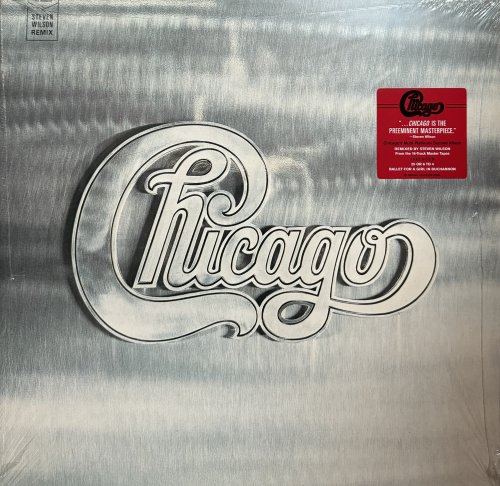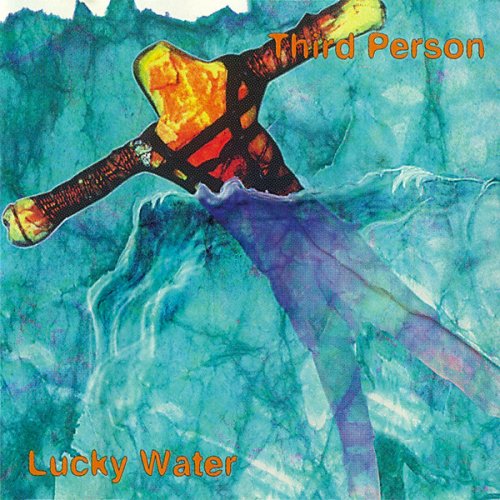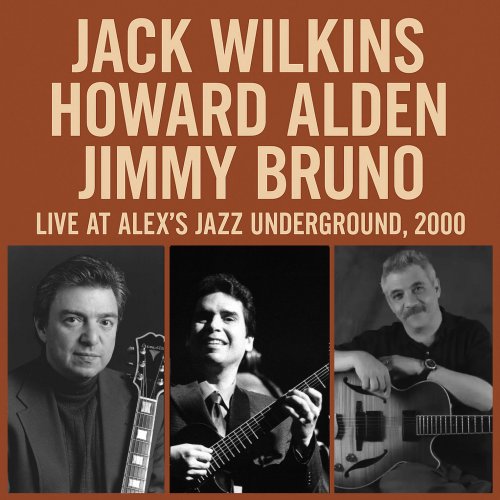Daniel Hope - Daniel Hope Plays Schnittke, Takemitsu, Weill (1999)
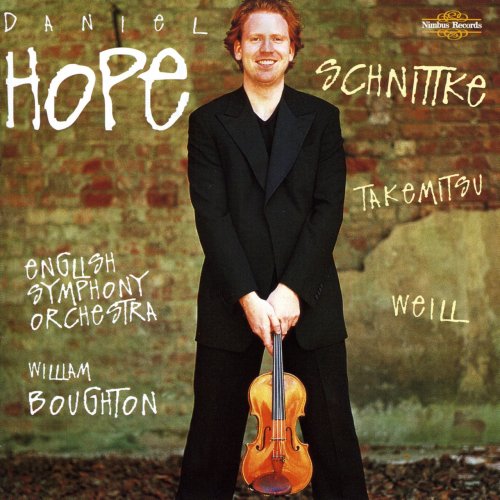
Artist: Daniel Hope
Title: Daniel Hope Plays Schnittke, Takemitsu, Weill
Year Of Release: 1999
Label: Nimbus Records
Genre: Classical
Quality: FLAC (tracks) / MP3 320 Kbps
Total Time: 01:12:59
Total Size: 316 mb / 190 mb
WebSite: Album Preview
Tracklist: Title: Daniel Hope Plays Schnittke, Takemitsu, Weill
Year Of Release: 1999
Label: Nimbus Records
Genre: Classical
Quality: FLAC (tracks) / MP3 320 Kbps
Total Time: 01:12:59
Total Size: 316 mb / 190 mb
WebSite: Album Preview
Sonata For Violin And Chamber Orchestra
Composed By – Alfred Schnittke
1. I Andante 2:36
2. II Allegretto 4:55
3. III Largo 5:11
4. IV Allegretto 4:49
Concerto For Violin And Wind Orchestra, Op. 12
Composed By – Kurt Weill
5. I Andante Con Moto 9:55
6. II Notturno: Allegro Un Poco Tenuto 3:21
7. [II] Cadenza: Moderato - Vivace 3:51
8. [II] Serenata: Allegretto 3:39
9. III Allegro Molto, Un Poco Agitato 7:02
Concerto Grosso No. 6 For Piano, Violin And String Orchestra
Composed By – Alfred Schnittke
(13:35)
10. I Andante - Allegro 3:31
11. II Adagio 4:36
12. III Allegro Vivace 5:28
13. Nostalghia For Violin And String Orchestra
Composed By – Toru Takemitsu 14:08
Performers:
Daniel Hope, violin
English Symphony Orchestra
William Boughton, conductor
Full marks to Nimbus for variety. The danger is that three such different composers, combined in a way you would never expect in a concert, will cancel each other out. Fortunately, the performances are strong enough – even when heard in close succession – to justify the enterprise, and the recordings are no less successful in the way they capture the intimacy of tone characteristic of all four compositions.
The early Weill Violin Concerto can easily sprawl, and sound too earnest for its own good. Here there is an appropriate fluency, and excessive gravity is avoided. Daniel Hope is able to project the required authority, especially in the cadenza, and although some listeners might prefer a more forward placement for the soloist, such as EMI provides for Frank Peter Zimmermann in his admirably lithe and sparkling account, the excellent qualities of Hope’s playing are no less appealing. As for Takemitsu’s song of farewell for the film-maker Andrei Tarkovsky, the music is a model of how to balance emotional restraint and expressive warmth, and the performance does it justice.
With the earlier of the Schnittke works, the Sonata, a textual point of some interest emerges. Usually, as in the BIS recording, the harpsichord functions as the violinist’s alter ego throughout, but Hope, with Schnittke’s agreement, has the keyboardist move from harpsichord to piano from the final stages of the second movement onwards. I think I may well still prefer the more desiccated harpsichord sound in the third movement, but the change is certainly justified in the finale, and adds an extra dimension to a commendably unexaggerated account of this turbulent score. The Nimbus performance of the much later Concerto grosso No. 6 is up against the more overtly emotional version by the dedicatees on Chandos. That remains memorable and gripping, but there is room for a degree of detachment in such fraught music, and this the Nimbus team provides.
The early Weill Violin Concerto can easily sprawl, and sound too earnest for its own good. Here there is an appropriate fluency, and excessive gravity is avoided. Daniel Hope is able to project the required authority, especially in the cadenza, and although some listeners might prefer a more forward placement for the soloist, such as EMI provides for Frank Peter Zimmermann in his admirably lithe and sparkling account, the excellent qualities of Hope’s playing are no less appealing. As for Takemitsu’s song of farewell for the film-maker Andrei Tarkovsky, the music is a model of how to balance emotional restraint and expressive warmth, and the performance does it justice.
With the earlier of the Schnittke works, the Sonata, a textual point of some interest emerges. Usually, as in the BIS recording, the harpsichord functions as the violinist’s alter ego throughout, but Hope, with Schnittke’s agreement, has the keyboardist move from harpsichord to piano from the final stages of the second movement onwards. I think I may well still prefer the more desiccated harpsichord sound in the third movement, but the change is certainly justified in the finale, and adds an extra dimension to a commendably unexaggerated account of this turbulent score. The Nimbus performance of the much later Concerto grosso No. 6 is up against the more overtly emotional version by the dedicatees on Chandos. That remains memorable and gripping, but there is room for a degree of detachment in such fraught music, and this the Nimbus team provides.
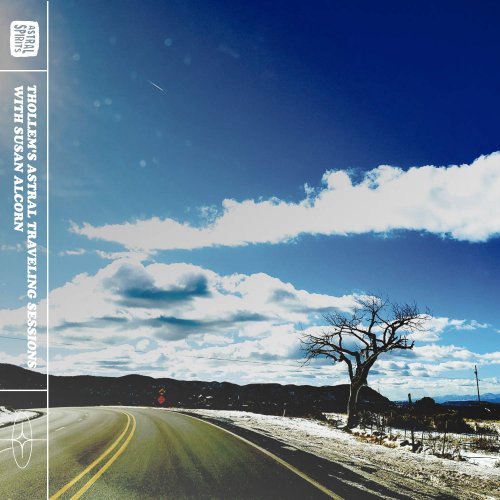

![Kate Kortum - Wild Woman Tells All (2026) [Hi-Res] Kate Kortum - Wild Woman Tells All (2026) [Hi-Res]](https://www.dibpic.com/uploads/posts/2026-01/1767862862_ajiixgeb8lsxc_600.jpg)

